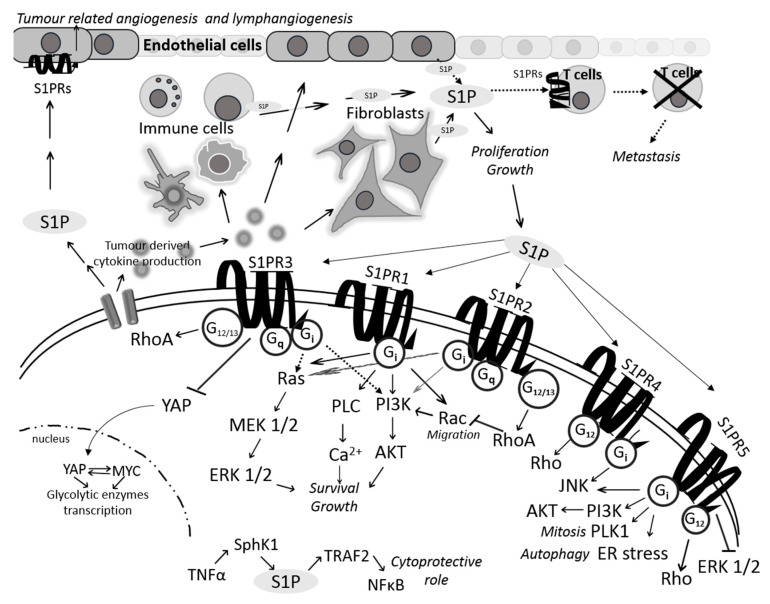Figure 2.
S1P-mediated interactions between cancer cells and the components of tumor microenvironment (TME). Tumor cells enable cytokine production that, when released in TME, stimulate endothelial cells, fibroblasts or immune cells to produce and secrete S1P. In this way, cancer cell ensures its survival and proliferation. On the other hand, S1P secreted from cancer cells can influence endothelial cells to promote angiogenesis and lymphangiogenesis but also suppress the activity of cytotoxic T-cells. Secreted S1P also binds to five different plasma membrane G protein-coupled receptors (S1PR1–5). Activated receptors, through the interaction with various associated G proteins, can regulate survival, proliferation, angiogenesis and migration by inducing several oncogenic signaling pathways such as RAS/MEK/ERK and PI3K/AKT. In comparison with S1P receptors 1, 3, 4 and 5, S1PR2 is known to bear dual role via either inhibition or activation of RAS/ERK and PI3K/AKT signaling due to its ability to couple to different G proteins.

